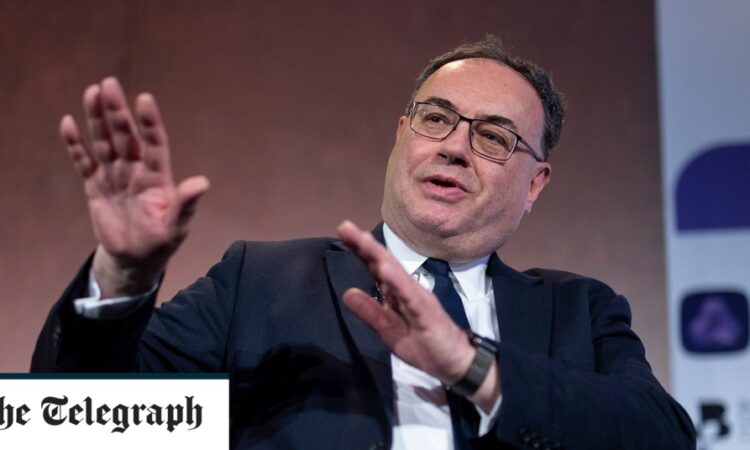
It could highlight potential risks such as the danger of fire sales taking place in particular markets, or funds that are particularly vulnerable to runs in a panic.
The exercise is unlikely to stop future financial shocks. However, it could make it easier for banks, pension funds, asset managers and regulators to respond.
Economists increasingly expect interest rates to remain high for the foreseeable future.
Paul Dales at Capital Economics predicted the Bank of England will need to force the economy into recession if it is to bring inflation back to its target, in part because of strong pay growth.
It came as the retailer Next said that pay rises in the spring appear to have boosted household spending, at least in the short term.
“For example, during April annual inflation was running at 8.7pc and monthly inflation was 1.2pc; if an individual received a pay rise of 5pc, then their real income would have risen by 3.8pc in that month,” said the retailer, headed by Lord Wolfson.
“We do not think it is a coincidence that sales stepped forward so markedly at a time of year when many organisations make their annual pay awards.”
However the company added that price rises will eat away at that earnings growth in the coming months, undermining consumer spending power once more.
Isabel Schnabel, a policymaker at the European Central Bank, said it is better to ramp up interest rates now to ensure inflation is forced down than it is to act more cautiously only to find the policy has failed and price rises have not been tamed.
“It is very costly to react only after upside risks to inflation have materialised, as this could destabilise inflation expectations and thus require a sharper contraction in output to restore price stability,” she said.
“A monetary policy stance that errs on the side of determination ‘insures’ against costly policy mistakes caused by inflation being more persistent than expected.”
The ECB has raised its deposit rate from minus 0.5pc a year ago to 3.5pc now, as part of the tightening of monetary policy sweeping the rich world to battle high inflation.






